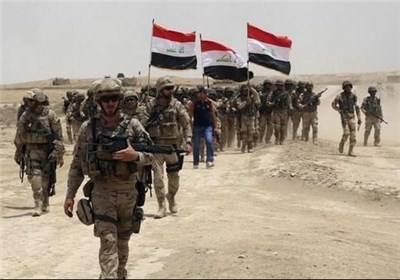
The operation to recapture Hit was relaunched last week, but the troops' progress has been slowed by hundreds of roadside bombs and efforts to safeguard thousands of civilians trapped inside the town.
"We've never had a delay like this on one of our targets," said Gen. Husham al-Jabri of Iraq's counter-terrorism forces late on Sunday, the Associated Press reported.
Al-Jabri carefully plotted progress towards Hit on a map in a temporary operations center just south of the city.
The initial push to take Hit was launched last month, but was quickly put on hold when Iraq's Prime Minister Haider al-Abadi pulled forces back to Baghdad after anti-government protests threatened instability in the Iraqi capital.
After the operation resumed, Iraqi forces had to deal with hundreds of roadside bombs laid by Daesh (ISIL) militatants along the main roads leading in and out of Hit, forcing convoys to veer off into the surrounding desert terrain. Even there, the forces' advance was repeatedly brought to a standstill by booby-trapped explosives. Progress was further complicated by muddy conditions after days of rainfall.
"The roadside bomb is the only weapon they have left to depend on," said Ayad Ghazi, a sergeant with one of the leading battalions inching toward the town.
Just a few hundred meters ahead of him plumes of orange smoke rose from controlled blasts. He said it took his men 12 hours to travel just three miles (five kilometers) on Sunday.
While initially used on a limited basis by al-Qaida in Iraq, the predecessor to the Daesh group, Daesh now produces roadside bombs on an industrial scale. Daesh militants use these bombs defensively, placing the devices to essentially create mine fields to impede advancing government forces. Daesh also litters cities and towns with the explosive devices to hinder pursuit of their fleeing fighters.
Iraqi forces have struggled to train and equip enough units to deal with the sheer volume of the bombs.
The US-led coalition said Iraqi forces were in the outskirts of Hit and working to surround the town, seeking to build on recent gains made by Iraqi army forces with the recapture in February of Ramadi, the capital of Anbar Province in central Iraq.
Hit, 85 miles (140 kilometers) west of Baghdad, lies along a supply line linking the extremist group's fighters in Iraq with those in neighboring Syria. Iraqi military officials say retaking Hit would cut Daesh supply lines and allow anti-Daesh forces to link up to the west and north of Baghdad.
Iraqi and coalition officials said that retaking Hit will be a key step before an eventual push on Mosul, the largest Iraqi city held by Daesh.
Tasnim News Agency - world solhkhabar | Peace International News Agency Peace International News Agency , Peace News , International Agency News of Peace
solhkhabar | Peace International News Agency Peace International News Agency , Peace News , International Agency News of Peace